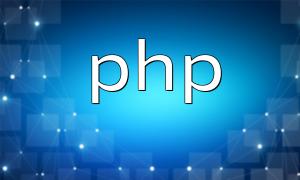In PHP development, classes and objects form the foundation of object-oriented programming (OOP). Mastering these concepts and applying best practices can significantly improve the structure and maintainability of your code. This article explores key principles and techniques for writing elegant and efficient PHP OOP code.
Before creating a class, think about its goal and responsibilities. Define what the class should do and which properties and methods it should include. This clarity helps avoid redundant logic and ensures a clean design.
Namespaces allow you to group related classes logically, making your codebase more organized and readable. For instance, you can place user-related classes in a User namespace and database-related ones in a Database namespace.
namespace App\User;
class Profile {
public function getInfo() {
return 'User Profile Information';
}
}Inheritance lets subclasses reuse properties and methods from parent classes, enabling cleaner and more extensible structures. For example, you can create a base User class and extend it with an Admin subclass that adds new functionality.
class User {
protected $name;
public function __construct($name) {
$this->name = $name;
}
}
class Admin extends User {
public function manage() {
return $this->name . ' is managing the system.';
}
}Interfaces define a set of methods that classes must implement, promoting flexibility and decoupling. Different classes can share the same interface while implementing distinct behaviors.
interface Logger {
public function log($message);
}
class FileLogger implements Logger {
public function log($message) {
file_put_contents('app.log', $message.PHP_EOL, FILE_APPEND);
}
}Dependency Injection is a design pattern that makes your classes more modular by passing dependencies from outside rather than creating them internally. This approach improves testability and flexibility.
class UserService {
protected $logger;
public function __construct(Logger $logger) {
$this->logger = $logger;
}
public function register($name) {
$this->logger->log('User '.$name.' registered.');
}
}Unit testing verifies that each part of your class works as expected, helping detect bugs early. Consistent testing practices lead to more reliable and stable software.
class UserTest extends PHPUnit\Framework\TestCase {
public function testUserCreation() {
$user = new User('Alice');
$this->assertEquals('Alice', $user->name);
}
}Well-written documentation helps others (and your future self) understand the logic behind your code. PHP supports DocBlock comments for describing parameters, return values, and method purposes.
/**
* Get user information
* @param int $id User ID
* @return array User information
*/
function getUserInfo($id) {
// ...
}Code reviews allow team members to examine each other’s work, catching logical issues and potential bugs early. This collaborative process helps maintain a high standard of code quality.
Version control systems like Git are essential for collaborative development. They track every change, allow rollback when needed, and make teamwork more efficient and reliable.
Continuous Integration (CI) automates build and testing processes, helping detect issues early with every code commit. Tools like GitHub Actions or Jenkins can significantly enhance productivity and code reliability.
Mastering PHP class and object best practices helps you build efficient, maintainable, and scalable codebases. By applying concepts such as namespaces, interfaces, inheritance, dependency injection, and unit testing, you can create high-quality object-oriented PHP applications with confidence.










